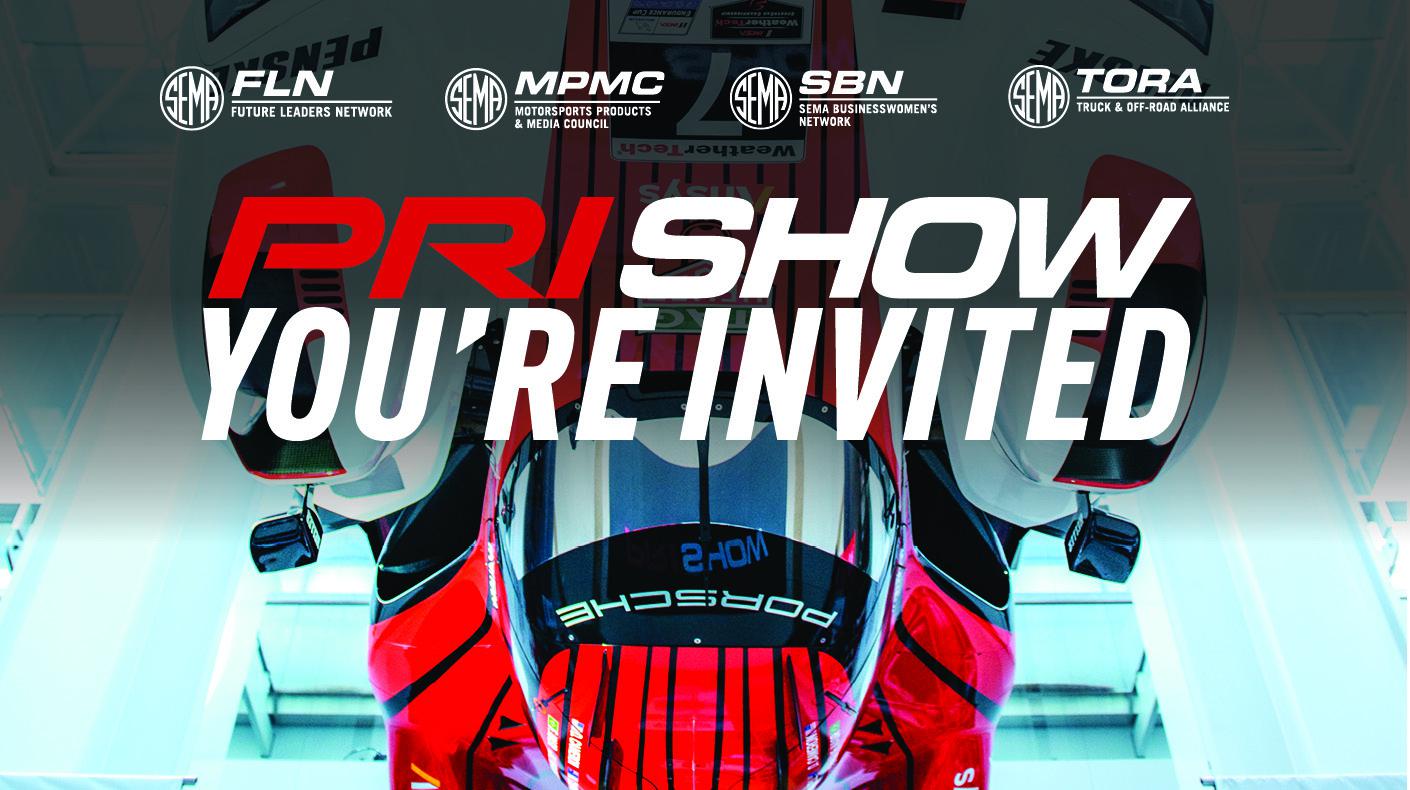SEMA News—March 2011
Using an Export Management Company
|
|
Rose Kawasaki, vice president of Exports International, said that the reasons some companies haven’t ventured overseas could include not knowing where and how to begin the process; not having enough staff to take care of international accounts; language barriers; and concerns about protecting their international property rights.
An EMC provides a manufacturer with a one-stop-shop approach for sales outside the United States. EMCs handle everything from finding overseas customers to complying with applicable overseas laws and making shipping arrangements. Some of the EMCs even assume the entire risk of foreign payments, taking possession of the product in the United States.
“EMCs typically offer a wide variety of services in addition to selling the product, including product development, credit services, consolidation and freight management,” said Peter Marr, president of Owens Classic International. “Most companies consider their export management company as an extension of the factory. They discuss market strategies, product strategies and brand development with this ‘export division’ of the company. The closer the coordination between the EMC, factory and international clients, the greater the success of the program.”
Export Sales Staff
EMCs serve as a manufacturer’s export staff, taking on the responsibility of developing and retaining export accounts. They can develop and implement comprehensive market-specific sales strategies for each manufacturer client.
“Each country varies in size, popularity of vehicle brands, needs and fashionable appeal, so each country needs to be studied on an individual basis for every exporter and every new product,” said Louise Haidar, director of Eximgo. “Our company does a thorough market study, including pricing, standards and any special needs.”
|
In addition to actual sales, EMCs handle other tasks associated with getting product from the manufacturer into the hands of overseas customers. Some EMCs handle the full range of SEMA-member product categories, while others specialize in specific niches.
|
Wade Kawasaki, CEO and founder of Exports International, said that his company custom tailors each relationship to best serve the market and maximize the manufacturer’s sales.
“We seek out new or existing overseas distribution customers that best align with the manufacturer’s products,” he said. “Each region has its own, unique distribution systems. Understanding those systems has allowed Exports International to not only sell product, but also structure overseas distribution as a benefit for long-term sustainable profitability for the manufacturers we work with and our customers worldwide.”
Kawasaki pointed out that opening several distributors for a particular manufacturer brand in a small country such as Trinidad doesn’t make sense. It would be more practical to have only one reputable distribution source to service that country and surrounding areas.
“In a larger country, our approach would be very different,” Kawasaki said. “Understanding the overseas market, finding the right partner, listening to the pulse of the area along with knowing the trends are important.”
Owens Classic Vice President Tracy Marr added that locating overseas customers for U.S. manufacturers is a large part of what the company does. Marr said that Owens Classic International has developed more than 300 customer contacts over 30-plus years.
Range of Services Provided
|
|
“We handle all types of parts and products and will export anywhere in the world,” said Joanne Craig, vice president of Express Parts. “We send daily shipments of all types and sizes. We ship everything from packages as small as a posted envelope to full ocean containers. It is all dependent on what the export client needs. We are also HazMat [hazardous material] trained and certified for the shipment of aerosols, batteries and paints.”
Export management company representatives said that tariffs and other fees imposed by governments are certainly a barrier in some countries but are not as large a problem as they might first appear. “Most major countries are now part of the World Trade Organization,” commented Peter Marr. “Duties, taxes, brokerage fees, air freight or inland freight costs can [also] have a huge impact on the seller’s ability to sell product where incomes and standards of living are not as high as in the United States. Our goal is to help our customers minimize their duties and taxes, thereby improving the competitiveness of the products we sell.”Wade Kawasaki said that his company has partnered with manufacturers to come up with creative solutions to make their products more competitive even though tariffs are sometimes a barrier to certain markets, and all of the EMC representatives noted that these export intermediaries are designed to be a one-stop shops. The range of services differs based on manufacturers’ needs, Haidar said, so Eximgo offers everything from simple introductions to help with full turnkey warehousing and distributing across Europe.
Broad Ranges and Specific Niches
Some EMCs handle the full range of SEMA-member product categories while others specialize in specific niches. Eximgo is based in the United Kingdom and has worked with U.S. and international aftermarket companies for 20 years. The firm specializes in assisting U.S. companies that want to break into European markets and European firms seeking a foothold in the United States. Haidar said that the company handles most outdoor, 4x4, pickup and specialty products for both OE and aftermarket sales for mostly European vehicles.
|
Some EMCs handle the full range of SEMA-member product categories while others specialize in specific niches. |
Tracy Marr added that Owens Classic primarily handles accessories for trucks and 4x4s, although it also occasionally handles accessories for cars and CUVs.
“Because we sell to many different channels of distribution in each country, we have opportunities for products that are sold in the DIY markets along with products that are installed by the official vehicle importers at the port of entry to many countries,” she said. “Because many of the countries we sell into are small, our customers rely on us for a wide range of products. In some countries, there may be only one importer that brings in accessories, performance parts, U.S. vehicle parts and chemicals.”
Wade Kawasaki said that Exports International began in racing and performance but has become a full-service provider; the firm now has direct relationships with more than 200 brand-name companies across the full spectrum of SEMA-
member manufacturers.
Handling Smaller Orders
EMCs can fill a niche for manufacturers who only sell to customers with pre-set minimum orders. EMCs excel in filling these smaller orders and getting them to market by consolidating various shipments, thus being able to deliver the products in a cost-effective manner. Craig noted that Express Parts assists clients with the smaller orders that they do not want to handle directly, and Wade Kawasaki said that his company’s greatest strength is being able to economically fulfill small orders. Kawasaki also said that an EMC can effortlessly rev up to shipping-container quantities as business for the U.S. client grows. And Craig said that some companies use EMCs for specific markets or for supplying their products to international customers who cannot order within the minimum requirements, although there must be agreements about the markets that are open and the pricing offered on such sales.
Removing Overseas Payment Risks
|
|
“Our U.S. manufacturers are never involved in any international credit or currency risks,” Peter Marr said. “We absorb all of that. Many of our clients have had open-account status with our firm for more than 25 years. We evaluate the risks, determine the currency of the transaction and sometimes obtain credit insurance where it is needed.”
Craig said that Express Parts performs similar services, taking ownership of the merchandise and responsibility for collection from export customers.
“This is an advantage for the U.S. manufacturer,” Craig said. “The products are distributed into foreign markets without the hassle and risk of overseas collection.”
Other EMCs may assist the client with a range of services but not take ownership, seeking instead to mitigate the risks of nonpayment. One export intermediary noted that it has products sent to its facilities to ensure the accuracy of the shipments and invoices but does not assume liability for overseas payments. This company said that such service benefits its clients because all shipments are verified and checked for damage prior to leaving the United States, greatly reducing the manufacturer’s risk in collecting funds from overseas customers.
|
SEMA member manufacturers can positively impact their bottom lines by seeking customers outside their home markets… |
“Take time to do some research, speak to colleagues who are having success abroad or contact a member EMC to ask for their advice and expertise,” advised Rose Kawasaki. “With the simplicity of the Internet and social networking options, the world is a much smaller place. SEMA members are very fortunate that the U.S. automotive aftermarket segment is considered the heartbeat of enthusiasts and that countries look to us to capture the lead on the next best thing, no matter what country they are located in.”
SEMA has made it a priority to help its members export. For more information about SEMA’s resources to expand your overseas sales, contact SEMA Director of International Relations Linda Spencer via e-mail at lindas@sema.org.








